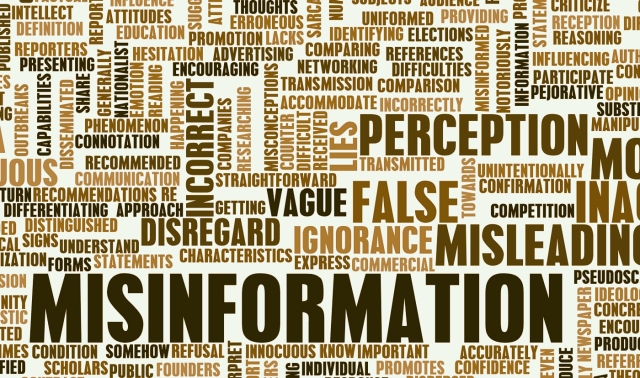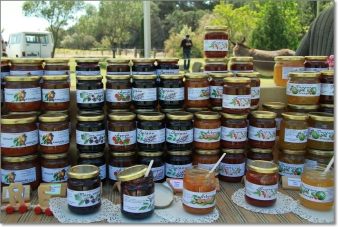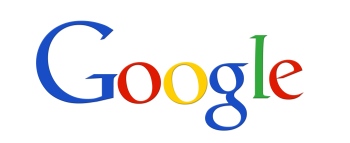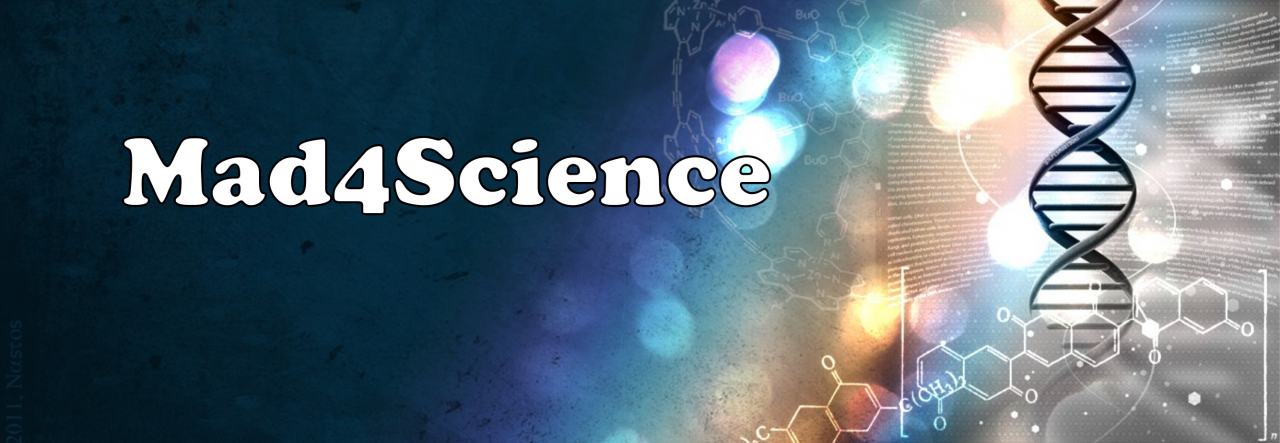 We are living today in a maelstrom of misinformation. Whether the Earth is flat or spherical, do vaccines cause autism or not, is the climate changing or is climate change just a vast left-wing conspiracy, these were once questions easily answered by research, empirical evidence and facts. Now they are matters of opinion in which everyone brings their own version of reality to the table and the winner is the one who can shout the loudest and dig in his heels the hardest. No civilized society, no democracy can stand without some fundamental agreement about how to determine what is real and what is not. We can agree to disagree on matters of opinion, like whether vanilla is better than chocolate. We cannot agree to disagree on matters of fact, like whether or not vanilla and chocolate exist.
We are living today in a maelstrom of misinformation. Whether the Earth is flat or spherical, do vaccines cause autism or not, is the climate changing or is climate change just a vast left-wing conspiracy, these were once questions easily answered by research, empirical evidence and facts. Now they are matters of opinion in which everyone brings their own version of reality to the table and the winner is the one who can shout the loudest and dig in his heels the hardest. No civilized society, no democracy can stand without some fundamental agreement about how to determine what is real and what is not. We can agree to disagree on matters of opinion, like whether vanilla is better than chocolate. We cannot agree to disagree on matters of fact, like whether or not vanilla and chocolate exist.
What used to be the market of ideas is now the box store of intellectual gratification. No matter how outrageous someone’s opinion is, from Holocaust deniers to moon landing conspiracy buffs, they can quickly and easily find someone, via a Google or Facebook search, with a site willing and able to back them up. We have an almost infinite number of choices for which universe we would like to live in. That is the problem.
 There is a body of research showing that too many choices actually interfere with our ability to determine which choice is best. In 2000, psychologists Sheena Iyengar andMark Lepper conducted a simple experiment to determine the effects of too much choice. They set up a table with a display of 24 varieties of gourmet jam in an upscale supermarket. Shoppers who sampled the jams received a $1 off coupon for any of the varieties. The next day the researchers set up a similar table, but this one only had six types of jam. As expected, the display with the larger number of varieties garnered more attention, but when it actually came time to make a purchase, consumers who were only given six types to choose from were ten types more likely to actually buy some. Those who were given the 24 choices seemed to be so befuddled by the number of varieties that they could not or would not make a choice and were much less likely to buy any of them.
There is a body of research showing that too many choices actually interfere with our ability to determine which choice is best. In 2000, psychologists Sheena Iyengar andMark Lepper conducted a simple experiment to determine the effects of too much choice. They set up a table with a display of 24 varieties of gourmet jam in an upscale supermarket. Shoppers who sampled the jams received a $1 off coupon for any of the varieties. The next day the researchers set up a similar table, but this one only had six types of jam. As expected, the display with the larger number of varieties garnered more attention, but when it actually came time to make a purchase, consumers who were only given six types to choose from were ten types more likely to actually buy some. Those who were given the 24 choices seemed to be so befuddled by the number of varieties that they could not or would not make a choice and were much less likely to buy any of them.
 This effect isn’t limited to jams. Coffee, breakfast cereals, pasta and even beer, all force us to make choices between a baffling plethora of flavors and tastes. Do you realize that there are 16 varieties of Cheerios alone? Now imagine this when extrapolated to the number of colleges, housing options, retirement and healthcare plans we have to choose from. We now live in an internet age in which this can even be applied to our individual reality.
This effect isn’t limited to jams. Coffee, breakfast cereals, pasta and even beer, all force us to make choices between a baffling plethora of flavors and tastes. Do you realize that there are 16 varieties of Cheerios alone? Now imagine this when extrapolated to the number of colleges, housing options, retirement and healthcare plans we have to choose from. We now live in an internet age in which this can even be applied to our individual reality.
Additional research has shown that too many choices leaves consumers dissatisfied with the choice they make, second guessing themselves and experiencing what has been termed “choice paralysis.” In his book The Paradox of Choice psychologist Barry Schwartz summarizes it this way.
Autonomy and Freedom of choice are critical to our well being, and choice is critical to freedom and autonomy. Nonetheless, though modern Americans have more choice than any group of people ever has before, and thus, presumably, more freedom and autonomy, we don’t seem to be benefiting from it psychologically.
If too much choice, even in news and information is bad, what can we do about it? Currently, Google, the world’s most popular search engine, uses algorithms that rank sites primarily according to the number of hits that they get and how well they match with the previous websites the person making the search frequents. That means that someone who frequents conspiracy websites is more likely to have additional conspiracy websites appear higher in their search results. This tends to reinforce their biases. Making matters worse is the practice of Search Engine Optimization (SEO) used by many websites to manipulate where they appear in search results. Sites use key words and the way they link to other sites in order to appear higher in searches.
I n 2015 Google conducted research on whether it would be possible to instead rank sites according to their accuracy and organize them based on that. As the researchers described it:
n 2015 Google conducted research on whether it would be possible to instead rank sites according to their accuracy and organize them based on that. As the researchers described it:
The quality of web sources has been traditionally evaluated using exogenous signals such as the hyperlink structure of the graph. We propose a new approach that relies on endogenous signals, namely, the correctness of factual information provided by the source. A source that has few false facts is considered to be trustworthy.
 Although this was simply research, not an actual plan by Google to implement this type of ranking, it would fundamentally change the way people use the web, or more precisely, how website owners use the people who use the web. Sites notorious for putting out false or misleading information, such as InfoWars or Natural News, would appear lower in listings and thus have fewer clicks. That would reduce their revenue and in some cases even threaten their ability to exist.
Although this was simply research, not an actual plan by Google to implement this type of ranking, it would fundamentally change the way people use the web, or more precisely, how website owners use the people who use the web. Sites notorious for putting out false or misleading information, such as InfoWars or Natural News, would appear lower in listings and thus have fewer clicks. That would reduce their revenue and in some cases even threaten their ability to exist.
This would reduce the number of information sources the public uses to the ones with the best reputation for accuracy, but it has also sparked a strong backlash from those who question whether Google or any company should be the arbiter of what is considered true and call it censorship. Regardless, this will be a continuing debate as we struggle to establish what is and isn’t the truth.
